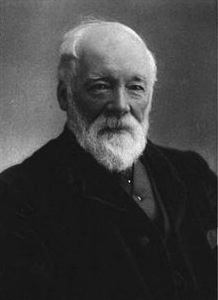Archive for August 7th, 2013
When Franzen met Oprah
I bought The Corrections about a week after it came out, on September 10, 2001. At the time, I had just returned to Cambridge to start my senior year of college, and with graduation looming in less than a year, I felt that I still had to figure out some important facts about my life, and fast. In reality, of course, I wasn’t figuring out my life at all—just one big stage out of many—but that isn’t something you can explain to someone in his early twenties. All I really knew was that I wanted to be a writer, and like most hungry young authors at that time, I’d followed Jonathan Franzen’s story with interest. Several years earlier, he’d written a famous essay in Harper’s on the state of modern fiction that was interpreted, at least after the event, as a promise to deliver a major novel, even if he didn’t come out and say this in so many words. As a result, the anticipation for The Corrections was as high as I’d ever seen for a literary novel, so I ran out to the Harvard Bookstore to get my own copy. When I took it to the cash register, the clerk said: “A lot of people are buying this one.”
By the following day, of course, we all had other things to worry about. I did read the book, though, and although I find it hard to correlate the two things in my mind these days, it must have been during those first few awful weeks. What I do remember is that I loved it. Like everyone else, I saw aspects of my own family, especially my grandparents, in Franzen’s novel, and I was blown away by its intelligence, sympathy, and unexpected humor. Franzen’s gift for comedy is enormous, although it wasn’t much in evidence in Freedom: at his best, he’s funnier than most conventionally humorous writers, and in retrospect, The Corrections feels like an unsung precursor of the cringe humor that would dominate the following decade. (Gary’s drunken misadventure with a pair of hedge trimmers is one of the few passages from any recent novel that I regularly reread for my own pleasure.) And I was especially struck by the fact that The Corrections was originally a fragment of a much longer work that Franzen refined to focus on the emotional story at its core, which is an example that more novelists, including myself, could stand to follow.
I’ve been thinking about all this again recently after reading an excerpt on Slate from Hothouse by Boris Kachka, which tells the story of the legendary publishing house Farrar, Straus and Giroux. The centerpiece of the book is its account of the curious incident of Franzen and Oprah, which casts my own memories of the novel in a rather different light. When Oprah announced that The Corrections had been selected for her book club, I’d finished the novel a few weeks earlier, so I felt as if the rest of the world was just catching up to a discovery I’d already made. As it turns out, that wasn’t really the case: Oprah had chosen the book long before its publication, with the announcement delayed several weeks because of the attacks, and the enormous promotional push it received was almost certainly calibrated with its selection in mind. In retrospect, this also goes part of the way toward explaining Franzen’s ambivalence toward his situation. As he says to Kachka: “Having gotten there on my own steam, I felt a certain resistance to the boost that [it] would represent.”
Frankly, it isn’t hard to understand Franzen’s feelings, as terrible as he might have been at expressing them in the moment. (His famous quote referring to Oprah as “a hero—not a hero of mine per se, but a hero in general” still makes me wince.) When you’re a writer, especially one who has been toiling away at craft for years with less recognition than you think you deserve, you want to believe that you’ve gotten where you are based solely on talent, rather than the book club lottery, and you want to prove to your own satisfaction that you could have made it on your own. If there’s anything that Franzen’s example proves, though, it’s that a book’s success or failure is out of the author’s hands. The Corrections is still an extraordinary novel, and it was more than worthy of the hype it received, but it reached its cultural position thanks to the confluence of countless factors: Franzen’s essay, the publisher’s determination for it to break through, the insane social and historical circumstances of its release. It’s as extreme a case as they come. But its own way, it’s a reminder of how little any of this is within an author’s control.
Quote of the Day
We often discover what will do, by finding out what will not do; and probably he who never made a mistake never made a discovery.



